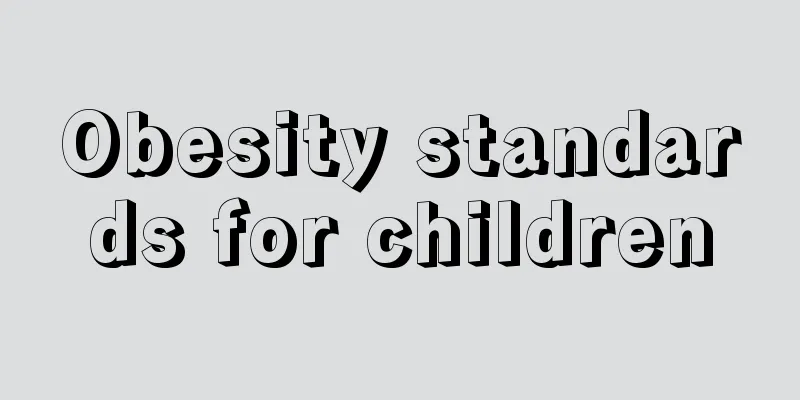The three-year-old baby's front teeth are decayed

|
Tooth decay is most common in children, and the most direct cause is their love for sweets. Of course, factors such as bacteria and oral environment can also cause tooth decay. My three-year-old baby has decay in the middle of his front teeth. As a parent, in addition to knowing the possible harm, the key is to take good measures to deal with it and minimize the damage to the child's body. So, what should you do if your three-year-old baby’s front teeth are decayed in the middle? The harm of tooth decay 1. Deciduous teeth are important chewing organs for children. Tooth decay will reduce the chewing function of teeth, which is not conducive to the digestion and absorption of food, and affects children's nutritional intake and growth and development; 2. After tooth decay occurs, the functional stimulation to the jawbone is reduced, which is not conducive to the normal development of the maxillofacial region and may lead to facial deformities. 3. If tooth decay occurs, especially in the front teeth, it will affect the appearance of children's teeth and pronunciation, and cause adverse stimulation to children's psychology. 4. In more serious cases, deciduous teeth with tooth decay can serve as lesion teeth and are associated with systemic diseases such as low fever, rheumatoid arthritis, and nephritis. 5. The existence of deciduous teeth reserves space for the eruption of permanent teeth and has a certain inducing effect on the eruption of permanent teeth. If the deciduous teeth are reduced in mesiodistal diameter or lost prematurely due to tooth decay, it can easily lead to abnormal eruption time of permanent teeth and malocclusion. Treatment Tip 1: “Plaque stain slides” make tartar visible. After your child finishes brushing his teeth, have him chew the object in his mouth for 1 minute, then rinse it out with clean water. At this time, the dirty areas on the tooth surface will be dyed red, while the areas that have been brushed clean will be safe and sound. Letting children see with their own eyes whether their brushing is effective can increase their enthusiasm for brushing their teeth seriously. Tip 2: “Pit and fissure sealing” removes dead corners on tooth surfaces. There are many tiny cracks and pits on the surface of children's back teeth. Whenever they eat sticky food, these places always become places where dirt and grime accumulate. They are difficult to clean when brushing teeth and are often the areas where children are most susceptible to caries. Dentists can prevent the occurrence of pit and fissure caries using a method called "pit and fissure sealing". This technology is most suitable for children's deciduous molars and first permanent molars called "six-year molars". Tip 3: "Fluoride protective varnish" gives teeth a protective coat. This method is simple, efficient, safe and economical. It can effectively resist the threat of "sugar-coated bullets" and reduce the occurrence of tooth decay. Generally twice a year, it is especially suitable for preventing dental caries in young children. Tip 4: The SCAT method tests a child's risk of dental caries. Every child has a different sensitivity to dental caries. You may wish to use the SCAT method developed by Professor Shi Sizhen to conduct a small test on your child. If the test result is strongly positive, it should be of great concern and multiple methods should be taken to prevent children from developing tooth decay. Ensure adequate nutrition. Protein is the material basis for children's growth and development, and calcium and phosphorus are the main components of teeth and bones. Therefore, it is important for pregnant women and young children to eat foods rich in calcium, phosphorus, and vitamins A, C, and D, such as eggs, fish, shrimp, lean meat, pork liver, and fruits. This plays an important role in regulating calcium and phosphorus metabolism in children's bodies, promoting the deposition of calcium and phosphorus in teeth and bones, and preventing children's dental diseases. |
<<: What should I do if my child's front teeth grow crooked?
>>: Pustules on children's heads
Recommend
What to do if a child hits his head
Everyone knows that children are more naughty. Ma...
Why is the baby's tongue white?
For babies, if there are abnormal physical condit...
Symptoms of hand, foot and mouth disease in children
Hand, foot and mouth disease is a very common dis...
Is it a good thing to spank a baby when he has a fever?
During the development stage of the baby's bo...
What should we pay attention to when children have low white blood cell count?
The current social environment and some drugs alw...
What to do if your child has a collapsed nose
We all know that if our nose is high and straight...
Newborn baby's mouth keeps moving when sleeping
When a newborn baby is sleeping, his mouth keeps ...
The genetic causes of autism in children also include these
Autism is a very common group of diseases nowaday...
How to care for a baby with a fever
The baby's transformation from a fetus to bir...
What should I do if my son has phlegm in his throat?
Children nowadays are the treasures of the family...
Baby's nails are uneven
The baby's nails have a certain indicative si...
What to do if your 9-month-old baby has enteritis
The spleen and stomach of a nine-month-old baby a...
What are the symptoms of viral dermatitis in children?
Children's skin is always very delicate and t...
What to do if baby's belly button is bleeding
Because the baby's physique is relatively fra...
Sun time for babies
We all know that sun exposure helps promote calci...









